- Honorary Plenary Lecture
- Home > Program > Honorary Plenary Lecture
- Place: #205(2F), BEXCO
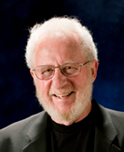
Prof. Alan J. Heeger
Univ. of California, Santa Barbara, USA
Biography
Born Sioux City Iowa, 1936
Graduated from High School, 1953
Undergraduate degree from University of Nebraska, 1957
PhD UC Berkeley, 1961
Married, 1957
Assistant Professor University of Pennsylvania, 1962
Full Professor Univseity of Pennsylvania, 1966
Buckley Prise (American Physicaal Sosiety), 1982
Nobel Prize, 2000
Honorary Degrees from Universities all over the world throughout my csrreer
: In Honor of Prof. Alan G. MacDiarmid
-
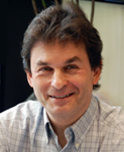
Prof. Richard B. Kaner
Univ. of California, Los Angeles, USA
Biography
Richard Kaner received a Ph.D. from the University of Pennsylvania in 1984 working with Prof.
Alan MacDiarmid (Nobel Laureate 2000, deceased). After postdoctoral research at Berkeley, he joined the Univerisity of California, Los Angeles (UCLA) in 1987, earned tenure in 1991, became a Distinguished Professor in 2012 and was appointed to the Dr. Myung Ki Hong Endowed Chair in Materials Innovation in 2017. He has published over 375 papers in top peer reviewed journals and holds 29 U.S. patents. According to the 2014, 2015 and 2016 Thomson-Reuters rankings, he is among the world’s most highly cited authors. Professor Kaner has received awards from the Dreyfus, Fulbright, Guggenheim, Packard and Sloan Foundations along with the Materials Research Society Medal, the Royal Society of Chemistry Centenary Prize, and the American Chemical Society’s Buck-Whitney Research Award, Tolman Medal and Award in the Chemistry of Materials for his work on refractory materials including new synthetic routes to ceramics, intercalation compounds, superhard metals, graphene and conducting polymers. He has been elected a Fellow of the American Association for the Advancement of Science (AAAS), the American Chemical Society (ACS), the Materials Research Society (MRS) and the Royal Society of Chemistry (FRSC). -
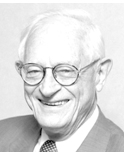
Alan Graham MacDiarmid
(14 April 1927 – 7 February 2007 / aged 79)
Biography
Alan G. MacDiarmid, (born April 14, 1927, Masterson, N.Z.—died Feb. 7, 2007, Drexel Hill, Pa., U.S.), New Zealand-born American chemist who, with Alan J. Heeger and Shirakawa Hideki, was awarded the Nobel Prize for Chemistry in 2000 for their discovery that certain plastics can be chemically modified to conduct electricity almost as readily as metals.
MacDiarmid earned Ph.D.’s in chemistry at the University of Wisconsin at Madison (1953) and the University of Cambridge (1955). He then joined the faculty of the University of Pennsylvania, becoming full professor in 1964 and Blanchard Professor of Chemistry in 1988.
During a visit to Japan in the mid-1970s, MacDiarmid met Shirakawa, who reported that he and his colleagues had synthesized polyacetylene, a polymer that was known to exist as a black powder, into a metallic-looking material that still behaved as an insulator. In 1977 the two men and Heeger, collaborating at the University of Pennsylvania, decided to introduce impurities into the polymer much as in the doping process used to tailor the conductive properties of semiconductors. Doping with iodine increased polyacetylene’s electrical conductivity by a factor of 10 million, which made it as conductive as some metals. The discovery led scientists to uncover other conductive polymers. These polymers contributed to the emerging field of molecular electronics and were predicted to find application in computers.
MacDiarmid held some 20 patents and was the recipient of numerous awards. In 2001 he was made a member of the Order of New Zealand, the country’s highest honour.
: In Honor of Prof. Hideki Shirakawa
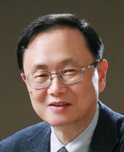
Prof. Yung Woo Park
Seoul Nat'l Univ., Korea
Biography
Prof. Yung Woo Park is currently a Principal Investigator of the Institute of Applied Physics, Seoul National University. He also holds a dual appointment as an Adjunct Professor at the Department of Physics and Astronomy, University of Pennsylvania, USA. He received his Ph.D. degree at the University of Pennsylvania, Philadelphia, USA in 1980. From 1980 to 2017, he was a Professor in the Department of Physics and Astronomy, Seoul National University and has become an Emeritus Professor of the Seoul National University since 2017. He is a fellow of the American Physical Society and a Foreign Member of the Göteborg Royal Academy of Science and Arts, Sweden. His research interest includes Synthesis and Transport of Conducting Polymers, Carbon Nanotubes, Graphene & 2D Materials, Organic Crystals and Highly Correlated Materials-
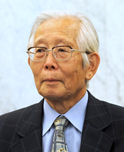
Prof. Hideki Shirakawa
BORN
- August 20, 1936(Tokyo)
PROFESSIONAL APPOINTMENTS1961 B.S., PolymerChemistry, Tokyo Institute of Technology, Japan 1963 M.S., PolymerChemistry, Tokyo Institute of Technology, Japan 1966 Dr. Eng., PolymerChemistry, Tokyo Institute of Technology, Japan
AWARDS, FELLOWSHIPS, etc.1966-1979 Research Associate, Research Laboratory for ResourcesUtilization, TokyoInstitute of Technology 1976-1977 Postdoctoral Fellow, Department of Chemistry, University ofPennsylvania 1979-1982 Associate Professor, Institute of Materials Science, University of Tsukuba 1982-2000 Professor, Institute of Materials Science, University of Tsukuba 1991-1993 Chair of Master’s School in Sciences and Engineering, GraduateSchool, University of Tsukuba 1994-1997 Provost of the ThirdCluster of Colleges, University of Tsukuba April 2000 Retired, Professor Emeritus, University of Tsukuba 2001-2003 Member of Council for Science and Technology Policy, Cabinet Office
Memberships1979-2000 Regional editor, Synthetic Metals (Elsevier) 2001- Emeritus Regional editor, Synthetic Metals (Elsevier) May 1983 Award of the Society of Polymer Science, Japan (1982) May 2000 Award for Distinguished Service in Advancement of PolymerScience, the Society of Polymer Science, Japan (1999) Nov 2000 Person of Cultural Merits Nov. 2000 Order of Culturea Dec. 2000 Nobel Prize in Chemistry 2000 Jan. 2002 Member of the JapanAcademy - Society of PolymerScience, Japan
- Chemical Society of Japan
- Physical Society of Japan
- Electrochemical Society of Japan
-
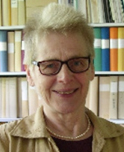
"The Amyloid Beta Peptide in Alzheimer´s Disease: Molecular Interactions and Structure Conversions Studied by Biophysical Methods"
Prof. Ruth Astrid Olivia Gräslund
Stockholm University, Sweden
Major Activities
- High School graduation at Högre Allmänna Läroverket in Härnösand, April 21, 1963
- Master of Science in Engineering (Applied Physics) at the Royal Institute of Technology, Stockholm, October 30, 1967
- Doctor of Philosophy (Biophysics) at Stockholm University, November 29, 1974
- Research assistant at Dept. of Biophysics, Stockholm University, 1967 - 1976.
- Assistant/associate professor at Dept. of Biophysics, Stockholm University, 1977 - 1988.
- Professor of Medical Biophysics, University of Umeå, 1988 - 1993.
- Professor of Biophysics, Stockholm University, since 1993. Formally retired 2012, at present partly reemployed (20%) as Professor of Biophysics (working full time).
- The 1982 Lindbom Prize, awarded by the Royal Swedish Academy of Sciences.
- The 1995 Arrhenius Plaque, awarded by the Swedish Chemical Society.
- The 2007 Björkén prize, awarded by Uppsala University.
- Elected Member of the Royal Swedish Academy of Sciences, Class of Chemistry, since 1993.
- Elected Fellow of the International Society of Magnetic Resonance, since 2009.
- Elected Fellow 2018 of the American Biophysical Society.
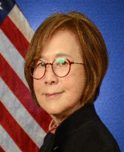
"AFOSR International Initiatives"
Dr. Misoon Mah
Air Force Office of Scientific Research (AFOSR), USA
Education
- Ph.D., Electrical Engineering / University of Cincinnati, Cincinnati, OH
- M.S., Mechanical Engineering / University of Utah
- B.S.EE, Electrical Engineering / University of Dayton
- B.S. Chemistry / Sogang Jesuit College, Seoul, Korea
- Air Force Office of Scientific (AFOSR) Nov 2017-Present, International Program Officer
- Secretary AF Science & Technology Management Division (AQRT) Sep – Oct 2017, Program Manger
- Asian Office of Aerospace Research and Development (AOARD) May 2012 –Sep 2017, Tokyo, Japan, Chief
- Air Force Office of Scientific Research (AFOSR) Jun 2008- April 2012, Arlington, VA Program Manager
- Asian Office of Aerospace Research and Development (AOARD) Tokyo, Japan, Feb 2003 - May 2008, Program Manager
- AFRL Sensors Directorate 1983-2003, WPAFB, Dayton, OH, Electronics Engineer
- Responsible for developing programs in basic, fundamental science in the US and internationally; Novel
- Nano Magnetic Materials, Microwave Electronics Materials, RF and optical devices.
- Institute of Electrical and Electronics Engineers (IEEE) Senior Member and SPIE fellow 2015
- Exemplary Civilian Service (Department of the Air Force) in 2017
- Certificate of Recognition from the IEEE/SEM (South East Michigan) Section in 2001